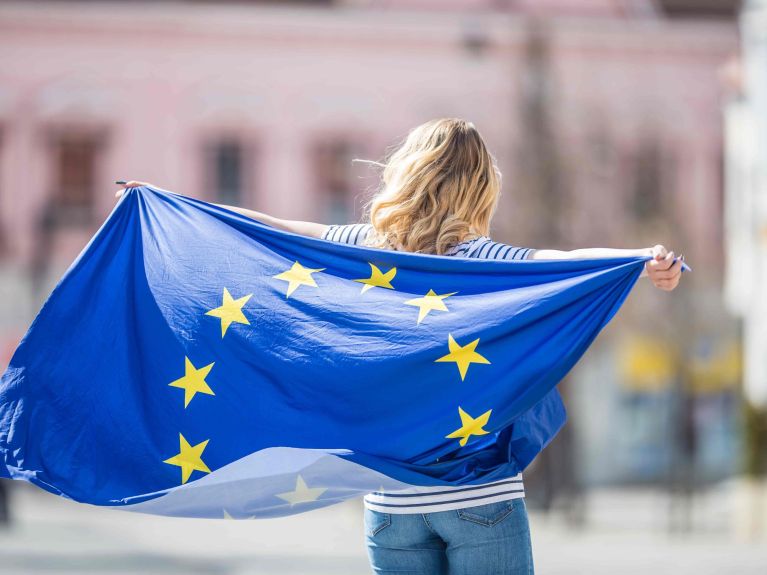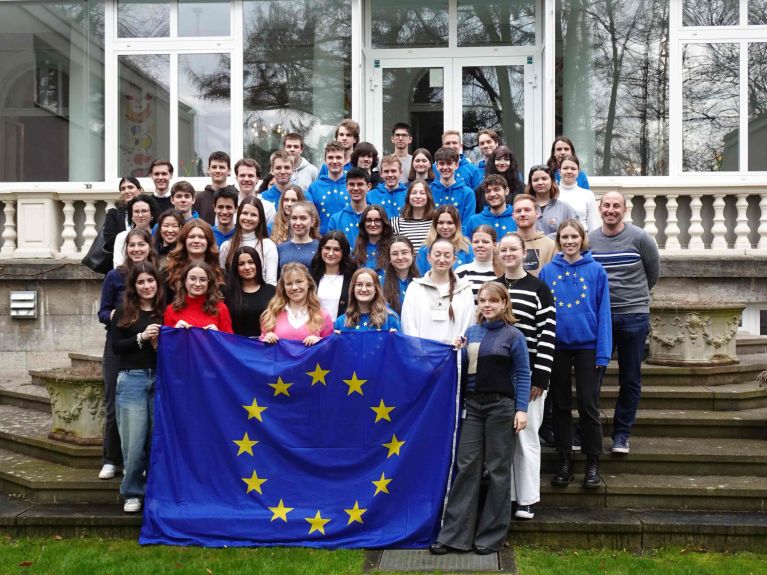Helping decide the course of the EU at 16
Elections to the European Parliament are taking place in all 27 EU countries in June 2024. Young people in Germany aged 16 and above will be able to vote.

Almost 5 million people in Germany will be able to vote for the first time in the European elections in June 2024. This year an extraordinary number of young people will have a say in the direction of European policy thanks to a change in the voting age in Germany which allows 16-year-olds to vote in European elections. So this year Federal Government Press Office and European Parliament have put on EU Camps to get young people ready to cast their votes. What do you need to know about the elections?
When will the next European elections be held in Germany?
Voters in Germany will be going to the polls on 9 June 2024. The period from Thursday 6 to Sunday 9 June has been set for the European elections in the member states. Though voting in most countries generally takes place on Sundays, as is the case in Germany, there are exceptions. In the Netherlands, for example, people traditionally go to the polls on a Thursday.
How often are European elections held?
The European Parliament (EP) is elected every five years. The first European elections were held in 1979, so June 2024 will see Europeans electing their parliament for the tenth time. They are the world’s biggest transnational elections.
How many people are eligible to vote?
In Germany, more than 66 million EU citizens can decide on the composition of the EU Parliament. In the union as a whole, around 350 million people are eligible to vote. In Germany, Belgium, Malta and Austria, EU citizens aged 16 or older can vote, while the minimum age is 17 in Greece and 18 in the other member states.
What are the EU Camps for first-time voters designed to do?

The camps took place over four weekends between December 2023 and April 2024. Each was a chance for 50 first-time voters aged between 16 and 21 from across Germany to find out more about the EU and European elections. The aim was to “communicate the value of European democracy and bring out the importance of European parliament elections. We also wanted to explore young people’s questions on all topics related to the European Union,” said a Federal Press Office spokesperson.
